Ahmed Al-Jarallah: Media Freedom, Arab Spring & Kuwait’s Problems
Interview with Ahmed Al Jarallah, Chairman & Editor-in-Chief Arab Times. What are they doing in Egypt right now? Egypt used to be a very strong country of the Arab world – had a strong army, a large population of 90 million people, lots of chances to invest…
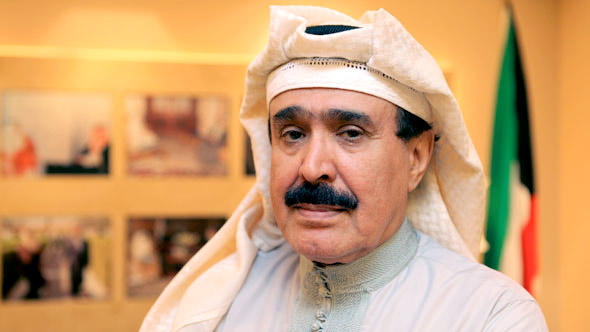
If you want to compare the freedom of the press in Kuwait with the situation in America or Europe, you will find that it is very limited here. Also, we are in an Arabic (and thus Muslim) society which has its traditions, its habits. Most of the time, you cannot avoid or go around those guidelines. Revenge remains and always is a part of the people’s mentality, especially those who have had their freedom compromised – no matter what kind of freedom it is. Also, in places such as, for instance, the United States or Britain, freedom is seen as one of the merits of a democracy. And in England, if we go back in time, we will probably find democracy 600 years from today. For the first 200 years or 300 years, the laws were very tough. The people were prohibited from doing any kind of nasty things through the press. What’s more, at that time, there was no technology like the one we have today.
What are they doing in Egypt right now? Egypt used to be a very strong country of the Arab world – had a strong army, a large population of 90 million people, lots of chances to invest… But they have a very bad economic administration, although we are currently trying to improve it by telling them what they should do and what they should not.
Now, going back to Kuwait, here is what we need. First of all, we need very tough laws to prevent people from using that freedom to their advantage and to the disadvantage of the people. We need to prevent irresponsible people from controlling or publishing any kind of media.
Today, on the Internet, under false names, we see very nasty claims and other things that are clearly hurting the people. Legally, there is nothing we can do against it, but we would like to avoid that kind of fate for newspapers if possible. In countries like the United States, for instance, we can find a high level of freedom, but with it comes a high level of responsibility. We cannot compare both freedoms.
I would like to ask you to speak more broadly about the Arab world. From your past experience, you have seen the political and social development. You have covered stories – in Palestine, for instance – related to the war. What do you see in the future? Is this region going to play an important role for the growth of the country? What sort of trends do you see happening?
If you talk about six countries of the Arab world – countries of the GCC –, you can say that they have a very successful unity. For the oil, we expect about 1 trillion in revenue, with very limited people in a vast geographic area. In 5 to 6 years, it might be 1.5 trillion, maybe 2 trillions. We expect that the people of the GCC countries will grow intellectually, that they will become more civilized, that they will be more open to the rest of the world and that they will trade more with it. With the money generated by the oil, I believe that they can create a new image for the area and for the people.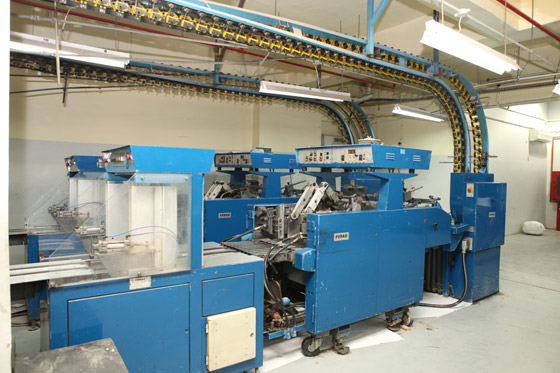
Now if we talk about the other Arabic countries… With this revolution growing in the area, I think they will need more time. We had been expecting a lot from Egypt, but after this revolution that they had I think that their image will go degrade. They are likely to have a bad time… I think they might need about 20 years to recover from what happened in the country.
Right now, not only are they losing a lot, but they are not united as a nation. There may be very well be many differences among them as we speak. In Libya’s case, it might not take as much time, because they are a smaller country. Yemen might actually do better than those two countries. At any rate, there will be help between them and the GCC countries because no one wants invaders to take over their country. They do not want Iranians or other people controlling their country as they do Lebanon and Syria.
Finally, let us not forget that this oil revenue will last for 60 to 70 years. If we look in the area, every generation is always better than the previous: it is cleverer, more energetic, and more ambitious. Also, we can’t blame every generations. We once lived in poverty and now we want to enjoy this wealth that we have. So we will give them a chance to enjoy it as long as they live.
Are the events of the Arab spring an opportunity or a threat?
I would say that it is both an opportunity and a thread. It was an opportunity when it arose in Tunisia, but when it moved to Egypt, it became a tragedy. For other countries, however, like Kuwait, Saudi Arabia and the rest of the GCC region, the leaders wondered why the people were rebelling. They say that it is because the people are hungry, have no chance, have no freedom, etc. Imagine the changes that happened in Saudi Arabia… There were a lot! Who was at the head of those changes? The king. Who guided the changes in Kuwait? The emir. If the Arab spring had not happened, I am certain that Bahrain would be with Iran now. So there are good things about this Arab spring.
And yet there are bad things too. What are they doing in Egypt right now? Egypt used to be a very strong country of the Arab world – had a strong army, a large population of 90 million people, lots of chances to invest… But they have a very bad economic administration, although we are currently trying to improve it by telling them what they should do and what they should not. After what happened, now, Egypt is in a very bad situation. A lot of business men and industries have left.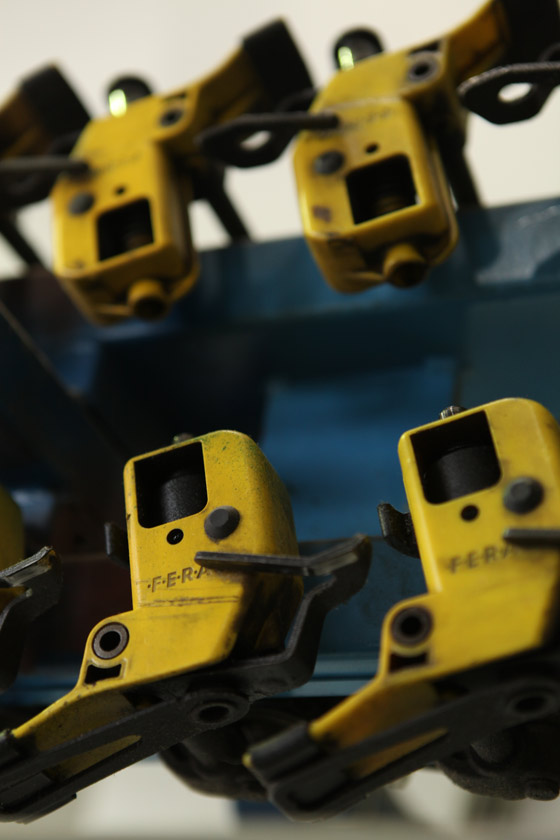
There is another good thing that came from this: we have learned the lesson. At least Kuwait has. Now we know what to do with our people. But there are people who don’t. Look at Syria: they did not know what to do at the time. If they had studied Egypt carefully, they might have acted better.
Let us now switch gears and talk about Kuwait. Kuwait has its own share of challenges. With the recent oil drop, for one, there will need to be a substantial budget cut. Also, there is huge dependency to oil: 94% of the government’s revenue comes from it. Additionally, there is trouble attracting people to jobs in the public sector because of the wages. Yet the strategy of the government is to support the private sector. There are a lot of contradictions. What is your take?
If you look at Kuwait’s income – taking the information at its source – you will find that it is around about 80 or 90 billion. We have a very bad political administration and a very weak government, as well as a weak regime, maybe. I believe that the people in charge do not know how to control the democracy. The people here are playing with the concept of democracy. It is neither a good type of democracy nor a good type of freedom. People do not know what it means. They do not know how freedom works, how democracy works. They do not know how to familiarize with those ideas.
This poses a problem and causes a great conflict between those who have received education and those who have no power to satisfy the people and to tell them that what they were told is wrong. People only talk about who owns and who does not. Some people wonder why Ali Baba drives a Rolls Royce, or why this other man drives a Cadillac, when they themselves do not. And so, as a result, people have started talking about the communist philosophy. They have created something like a quarrel between different categories of people.
The private sector is getting worse, because the Parliament does not truly know how to deal with it. They are fighting with the businessmen, telling some people that businessmen are thieves… If the people are hungry and you want them as workers, you should feed them instead of letting them continue to shout and protest. How can they be expected to work with an empty stomach…? Personally, I do not like the current situation. I do not like it at all. However, I have hope that one day people will wake up and understand that this is not the way to keep a country beautiful. We used to be very beautiful, but what are we now? Look at Dubai… It is a very small city, but it has a GDP of 1.1 trillion dirham. That money comes from the people who visit, who fly with the emirate, who pay for the hotels and resorts, who see their own personal freedom intact and from the local trade and re-re-exportation
Though it doesn’t look good for Kuwait, it is the second largest investor ( from oil revenues ) in the GCC countries.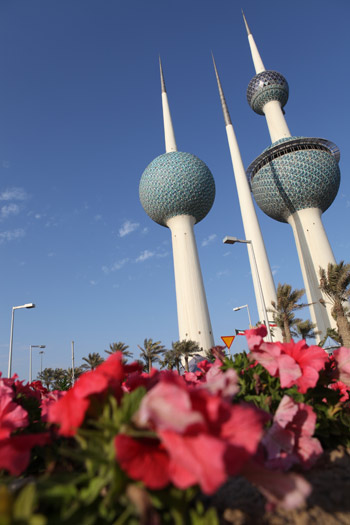
But where are those Kuwaiti? They are in Dubai, in India, in America… They simply left their country and went off to Saudi Arabia. They are not here anymore. There was this project called B.O.T…
Where is it now? Three or five people in this project did not have the chance to carry it out and they had to destroy it, to stop it completely. It is said about businessmen that they are thieves and that they are taking all the lands of the Kuwaiti… and sometimes the people really do believe it. One can prove to them that this is wrong, but one day they will realize that they lost a lot of time politically, talking a lot and doing nothing. We import communism, socialism, imperialism…
Every culture in the world, even Buddhism. We talk about it a lot, but we do nothing for our country. How many foreign investors come to Kuwait? Investments in Saudi Arabia are worth 70 billion, but only ¼ billion in Kuwait. Dubai is a small country, yet they have about 40 billion dollar and more.
Another challenge is, of course, the exploding public expenses on the unproductive sectors, especially wages and salaries for the governmental employees…
Some say that this is the fortune of the people, so give it to them, and if you need more, tax like the European countries. Don’t do taxes if you don’t need to have money and let the people enjoy their lives. But if you let them enjoy too much, you make them lazy because they are not working. If you go to any house, you will see about six cars in front of every house – Mercedes, for instance –, high-quality cars. From the mother, to the father and the children – everyone has a car, and not just any car. Still they say that they are a low income family.
This will have repercussions in the future. Another problem is a social challenge that Kuwait faces. In the next five years, there will be 350,000 young people entering the job market.
Let me tell you something. Like I said before, we have a very bad economic administration. We have a government that is muscled in the stomach. If they had muscles in their arms, they would be able to stop the problem. But they are very weak and when you are weak as a government or as a regime, the people will govern the country. In France, Sarkozy raised the age of retirement by two years and a revolution began. How many people were killed in this revolution? Yet nobody talked. Here, the people shout in a very bad way and claim their rights, but they do not do anything about it because no law is applicable for such situation.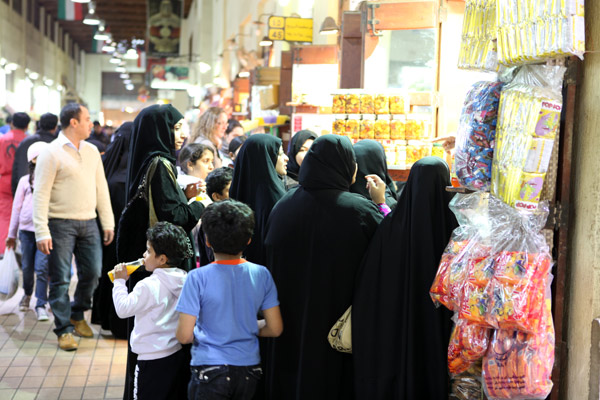
What are some of the things that make you think positively about the future of Kuwait?
We should have a very strong government. We should stop this, even everything surrounding salaries and the like. We should also encourage the private sector.
In Saudi Arabia and other countries, to have water in your house you need to be a shareholder and a consumer. Your own shares in the company that supplies you with the water you need. Same goes for electricity. This way, you know how you consume and if you like profits. Here, electricity costs Kuwait 40 fils, but the government asks in return only 2 fils from the people. How do we go from 40 fils to 2 fils?
Kuwait spends $ 8 million per year on the electricity. People should share and use according to their contribution. How many Kuwaiti are there? We are now 4 million – but 3 million non-Kuwaitis. The best traders out there are Indian, Pakistani, Iranian, etc., but they are not Kuwaiti. Here, people are always complaining and asking for more whereas elsewhere, people do this beautiful business.
The government is paying but it should be people who pay in the end! The government doesn’t know how to deal with it. They need a line to guide the people. One has to know that in Kuwait everything is tied to politics, even personal differences. And especially in the case of the government – if you don’t like somebody, you don’t act according to the law. You behave according to your feelings. It is a bad thing, but this is how it is.